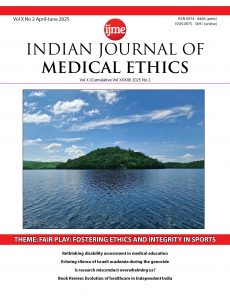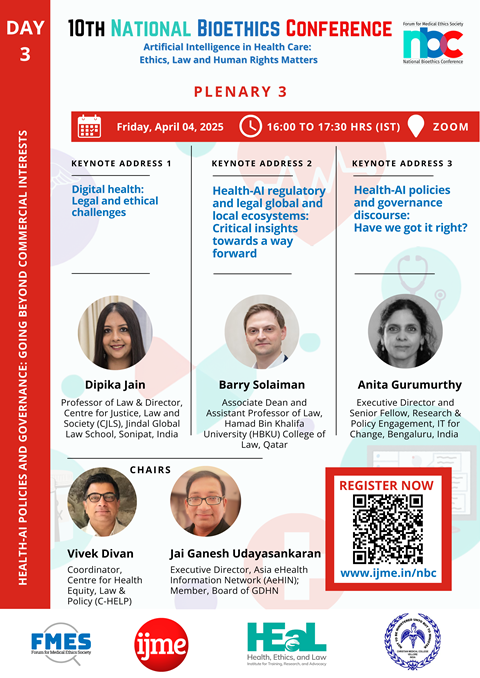This May, the World Health Assembly (WHA) will vote on re-establishing a mandate for the World Health Organization (WHO) to address the health consequences of nuclear weapons and war [1]. Health professionals and their associations should urge their governments to ...
Medical students face authorship issues as they are increasingly involved in research. Senior researchers often claim undue credit, while students lack support and awareness of their rights. The fear of retaliation and power imbalance worsens the issue. Solutions s...
Biotechnology has had a dramatic impact on how insulin is manufactured, and how much it costs to produce it. This paper examines the political, economic and social impact of biotechnology on the global insulin market. It provides an assessment of claims made by man...
AI-enabled healthcare presents exciting opportunities for better healthcare outcomes in India. The governance of any emerging technology can take multiple forms; mitigating risks while incentivising applications will require various policy instruments. Understandin...
A recent publication in an Indian journal stated that "Charak is known as the dad of Ayurveda (or) the dad of Ayurvedic medication.” Such inappropriate terms used in science communication are called “tortured phrases”. The use of such phrases could suggest deeper i...
Do not miss an interesting article that’s coming your way! Subscribe to our alerts now
SUBSCRIBE




